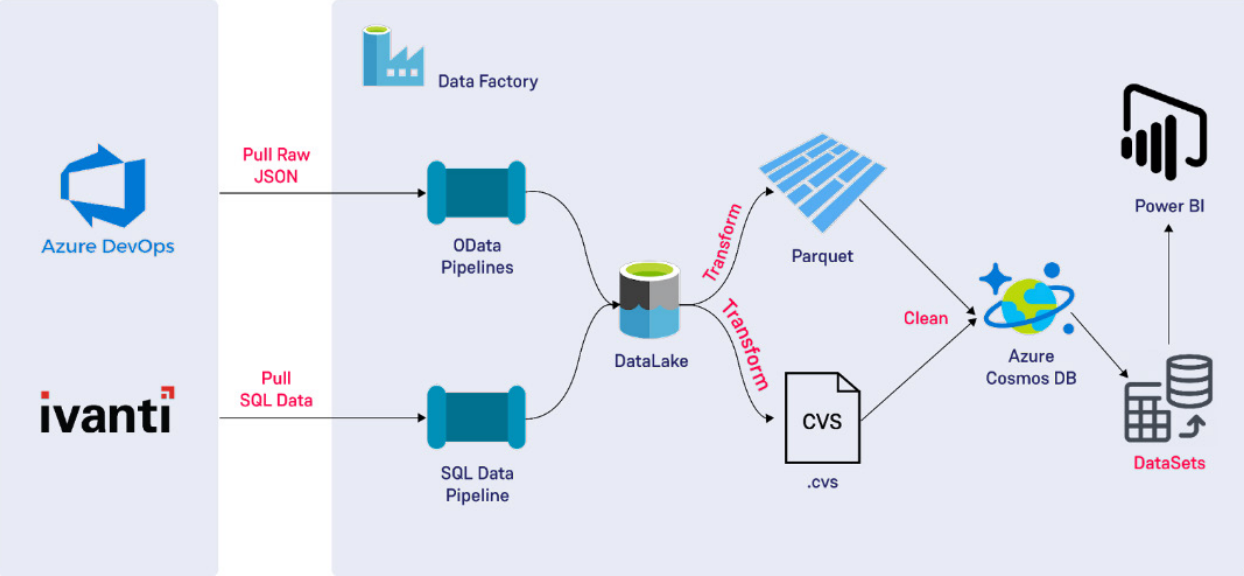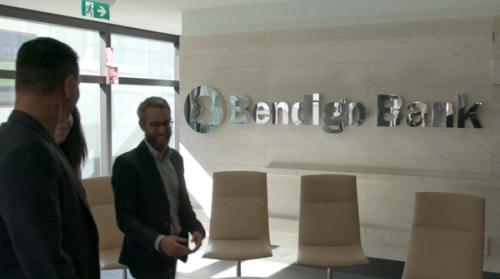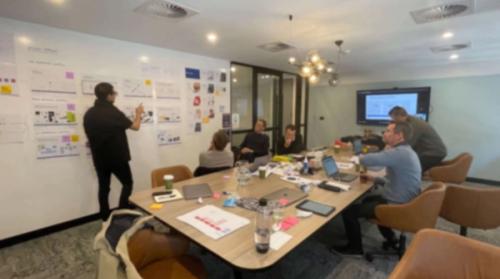Building a Legendary Microsoft Data Analytics Solution in 8 Weeks at Royal London Group
The Customer
Founded in 1861, Royal London Group (RLG) has firmly established itself as the UK’s leading mutual life, pensions and investment company.
Despite its rich history, the organisation is notably forward-thinking—always looking for new and improved ways of running its services.
The Challenge
To determine the current health of its services, RLG executives and team leads turned their attention towards the organisation’s existing data. They were looking to better understand how the dev teams currently work and release new features, and the impact of this on the business.
However, searching for the relevant data and common metrics across RLG’s many application services proved to be a significant challenge. They would need to gather all the disparate data—across cloud and on-prem data sources—and correlate it before any improvements to the services could be made.
The Solution
The Apollo Project
To gain a deeper insight into the software delivery lifecycle and to achieve greater transparency regarding the state of the different services, RLG reached out to Contino to support the existing engineering team with building a data analytics solution to ingest and translate data from several identified data sources, and turn that data into meaningful insight for a variety of internal customers; better known as the Apollo project.
Taking its name from the Greek god of truth, Apollo is RLG’s transparent and data-led approach to identifying opportunities for improvement across its software services.
By identifying where the organisation invests its time and effort from an engineering perspective, RLG is able to transform and grow key services; whether that’s addressing dependencies that are negatively impacting the speed of change, introducing more automation to speed up deployments or resolving consistent failures in a service to improve resiliency.
Key Metrics
During the first phase of the Apollo project, Contino and RLG focused on four key metrics (these are common indicators of high-performing teams):
- Lead time in delivering value for the customer: how long does it take to go from idea to
production? - Deployment frequency to production: how fast are we deploying changes?
- Mean time to recovery (MTTR): when we have an incident in production that is causing a
particular outage or disruption to our service, how fast can we respond and restore service? - The change failure rate for deployment: when we’re deploying through the environments, how often is it succeeding vs failing?
Guiding Principles
Contino and RLG worked according to the following guiding principles:
- Security is priority #1: all work must be delivered according to the highest security
standards and cloud best practices - We build it, we run it: the engineering team will be upskilled and empowered to take full
responsibility of the solution - Minimise disruption: we can deploy new versions of the infrastructure or visualisation platform at any time of the day with no disruption to the end user and deployments must be fully automated
- The environment is defined in code: all our environments have the same logical configuration and can be spun up or torn down as required
- One way door vs two way door: every design decision is evaluated as a one way door or a two way door and extra effort is given to the one way door decisions
Data Pipelines
The team needed to bring in data from different external data sources, including cloud and on-prem, interpret and “transform” this data in the Apollo platform, and visualise it in a meaningful way.
The data pipeline can be broken down into three key stages:
- The data is brought in from different data sources e.g. multiple Azure DevOps instances and ivanti service desk.
- The data goes through Azure Data Factory where it is pulled through to either DataLake or straight to Azure Cosmos DB. This step involves some data “transformation” to normalise it and enrich it, ready for data visualisation in the final stage in Power BI.
- Data goes through to Power BI service where it is visualised on a dashboard to offer meaningful insights.
The Business Outcome
Contino enabled RLG to go from zero to production-ready in just eight weeks. Leveraging advanced data integration and analytics tools from Microsoft, the Contino team supported RLG with collecting disparate data, transforming it and presenting it on a helpful dashboard for RLG team leads and executives to interpret.
The process is fully automated from a data perspective, providing RLG with an industry-leading, efficient and transparent way of interpreting its data.
Within the eight week piece of work, we went from scratch, to an established data analytics cloud solution with CI/CD pipelines through to production. The technical foundations for the Apollo solution have been established, and we are now in the iterative phases of enriching the data and making the insights more meaningful and actionable for our software development teams.
Phil McGaw, Head of Engineering, Royal London
With access to this dashboard and its meaningful insights, RLG leadership is now able to use this information about its key services to plan future investment and prioritise its transformation efforts.
[The Contino team] ran the project tightly, produced good solutions and left excellent documentation and training material. Very personable and open to spending time getting me trained up in areas I wasn’t quite understanding. I am quite tough to please so it was refreshing to have nothing to complain about.
Gabriel McColl, DevOps Engineer, Royal London
By demonstrating what is possible with a combination of PowerBI and Azure data mapping, the work has set the scene for further teams within RLG to utilise it—and to widen the scope of data to be ingested.




